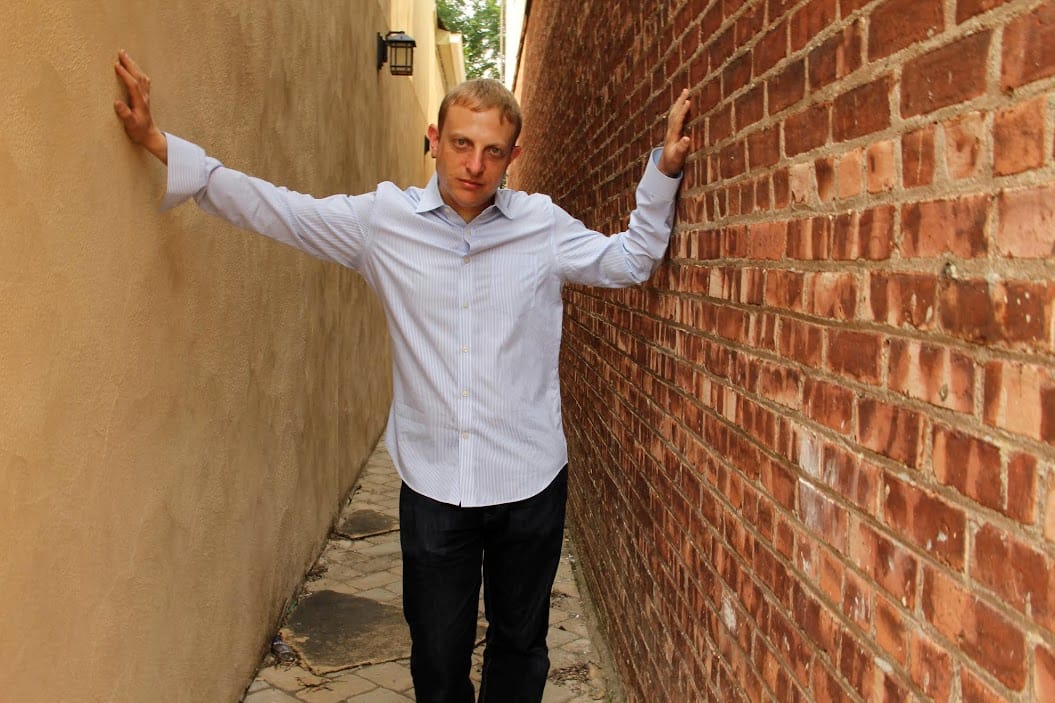Park Slope Jazz Pianist Closes ‘Infinite Distances’


In New York City’s unofficial theme song, Frank Sinatra famously promised that if you can make it here, you’ll make it anywhere. For Park Slope pianist Noah Haidu, exactly the opposite was true.
After dropping out of Rutgers, Haidu tried to break into the jazz scene in Philadelphia. He was nibbling around the edges of success, but couldn’t quite seem to make it. Then he moved to Brooklyn.
“I would go out every night and sit in and meet musicians and play and be heard, and within a couple of weeks I was working constantly doing gigs all the time,” he said.
Haidu, who will debut his latest album at Birdland this Thursday, has a simple explanation for the difference.
“The thing about NYC is that things are constantly changing,” he said. “In Philly, people held on to their gigs. In New York, someone’s always going out on tour, someone’s getting a bigger gig, someone’s getting a recording date. So there’s a person who’s going to get the gig they left behind.”
Soon enough, the person getting gigs was Haidu. He credits the development of a vibrant jazz scene in Brooklyn about 15 years ago as a key factor in his success. ”A lot of things that happened in Brooklyn were important in my career. There used to be a jazz session at a club on Flatbush — it’s not there anymore, the Up Over Jazz Cafe. Saxophonist Vincent Herring held the weekly jam session. He was one of my heroes growing up. I ended up playing at the club, and eventually going to his house and playing with him and finally playing with Vincent on some festivals. That’s just one example.”
Working as a session player in great demand, Haidu frequently performed on electric keyboards, but when putting together bands to play his own compositions, he’s focused on acoustic piano.
“Keyboards are interesting in terms of color and things you can do, an interesting supplement to acoustic jazz,” he said. “But actually creating the tone where the hammer hits the string and the tone reverberates is an immediate, direct connection. Electronic keyboard is often a digitally created sound, it can be quantified and mechanically recreated. On piano, you can’t play the same note twice the same way.“
Haidu took a circuitous path toward jazz, starting with classical piano as a kid and then gravitating toward blues guitar. But when he refocused on piano in his early twenties, “it was the bluesiest, swingingest players that attracted me,” he said. “Gene Harris and Oscar Peterson, that was all I wanted to listen to. It was like hearing BB King on the piano playing jazz standards.”
Haidu says he strives to bring the immediacy and emotional connection of the blues to his own music, even as he creates a platform for the kind of adventurous improvisation associated with free jazz. A key element of that is grounding his compositions with strong melodies.
“If you have a melody that brings people in, as a starting point, then everyone — musicians, the audience, listeners — all begin the journey together. You can go anywhere but it helps if we all start together,” he said. “If it starts out with straight freedom and no melody to get people on the bus, then you can go wherever you want, but you might be the only one going there.”
A journey that might lead anywhere is a good metaphor for Infinite Distances, the record Haidu will debut with his band at Birdland. Fans will recognize elements that marked his debut, Slipstream, which Haidu described as “very approachable, upbeat, and fun.”
“But the latest recording goes deeper to make an emotional connection,” he said “There’s some of that same fun, but also a more angular approach. There’s more risk-taking in terms of improvisation. The band is pushing, searching for new sounds, and I think it comes through.”
The darkness of Infinite Distance may echo the words of Rainer Maria Rilke that inspired it: “Even between the closest people infinite distances exist.”
But instead of bleakness, Haidu and his band deliver powerful solace in these tunes. The pianist plays along with Jon Irabagon and Sharel Cassity on saxophone and Jeremy Pelt on trumpet, fronting two different rhythm sections (Ariel Alejandro De La Portilla and Peter Brendler on bass and Mark Ferber and John Davis on drums).
There’s a delicious warmth in the tone and the courageous range in improvisation that Haidu mentioned.
The band spans those infinite distances as surely as Rilke said they might: “a marvelous living side-by-side can grow up for them, if they succeed in loving the expanse between them, which gives them the possibility of always seeing each other as a whole and before an immense sky.”
Noah Haidu appears at Birdland (316 W. 44th Street) at 6pm on Thursday, February 9. Tickets are available online. Check out ‘Infinite Distances’ on iTunes, to be released Friday.
Update: We’ve just learned that due to a family emergency, Thursday’s concert has been cancelled and rescheduled for April 16.




